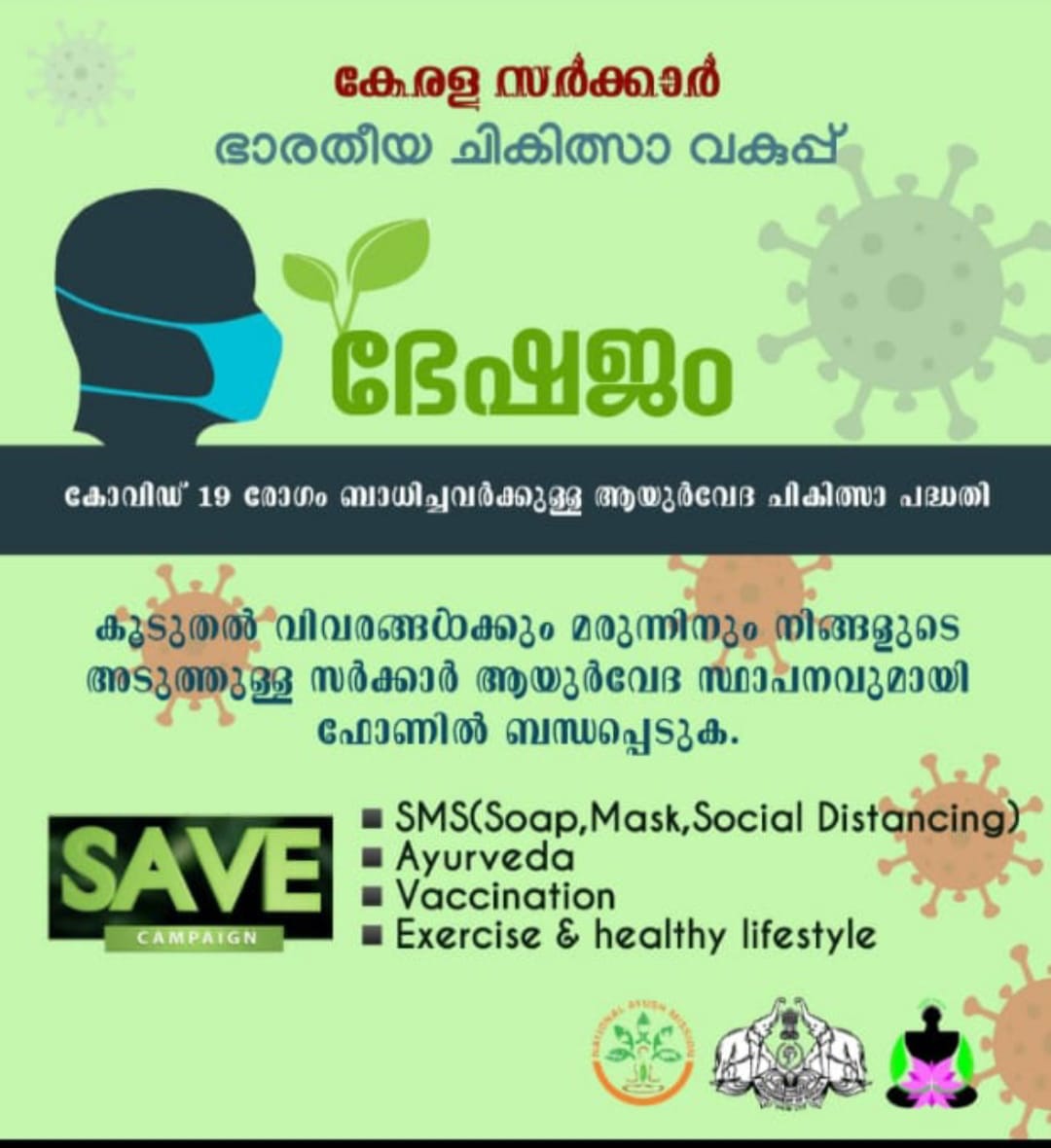Bheshajam

The department of AYUSH, Government of Kerala had instructed (No: A1/378/2020-AYUSH, dated 28-10-2020) the State Ayurveda COVID-19 Response Cell (SACRC) to submit detailed recommendations for incorporating the NCP-AY in the existing approved ayurvedic strategies for the management of COVID-19 in the state. Based on the recommendations submitted by the SACRC, the department of Ayush, Government of Kerala, had incorporated the NCP-AY into the approved Ayurvedic Strategies currently in existence in the state for the management of COVID-19.
The government had further extended the approved Ayurvedic strategies for the Prevention, Mitigation and Rehabilitation of COVID-19 in Kerala for the treatment of asymptomatic/mildly symptomatic COVID-19 patients (uncomplicated COVID-19 patients) in Kerala under home isolation or under care in designated first line or second line COVID-19 treatment centres in the state (G.O.(Rt) No.425/2020/AYUSH dated 18-11-2020).



